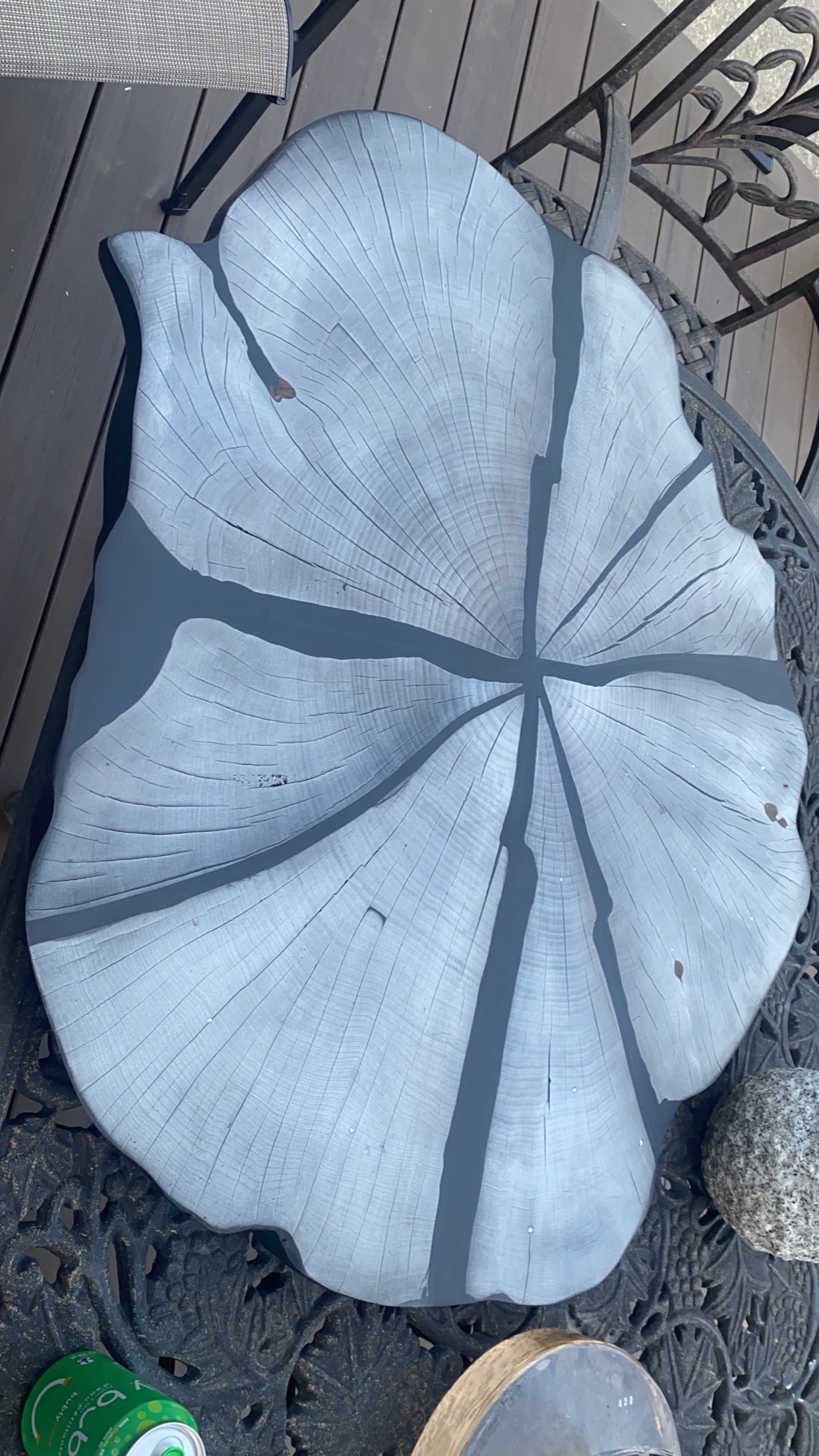Fin: The completed project
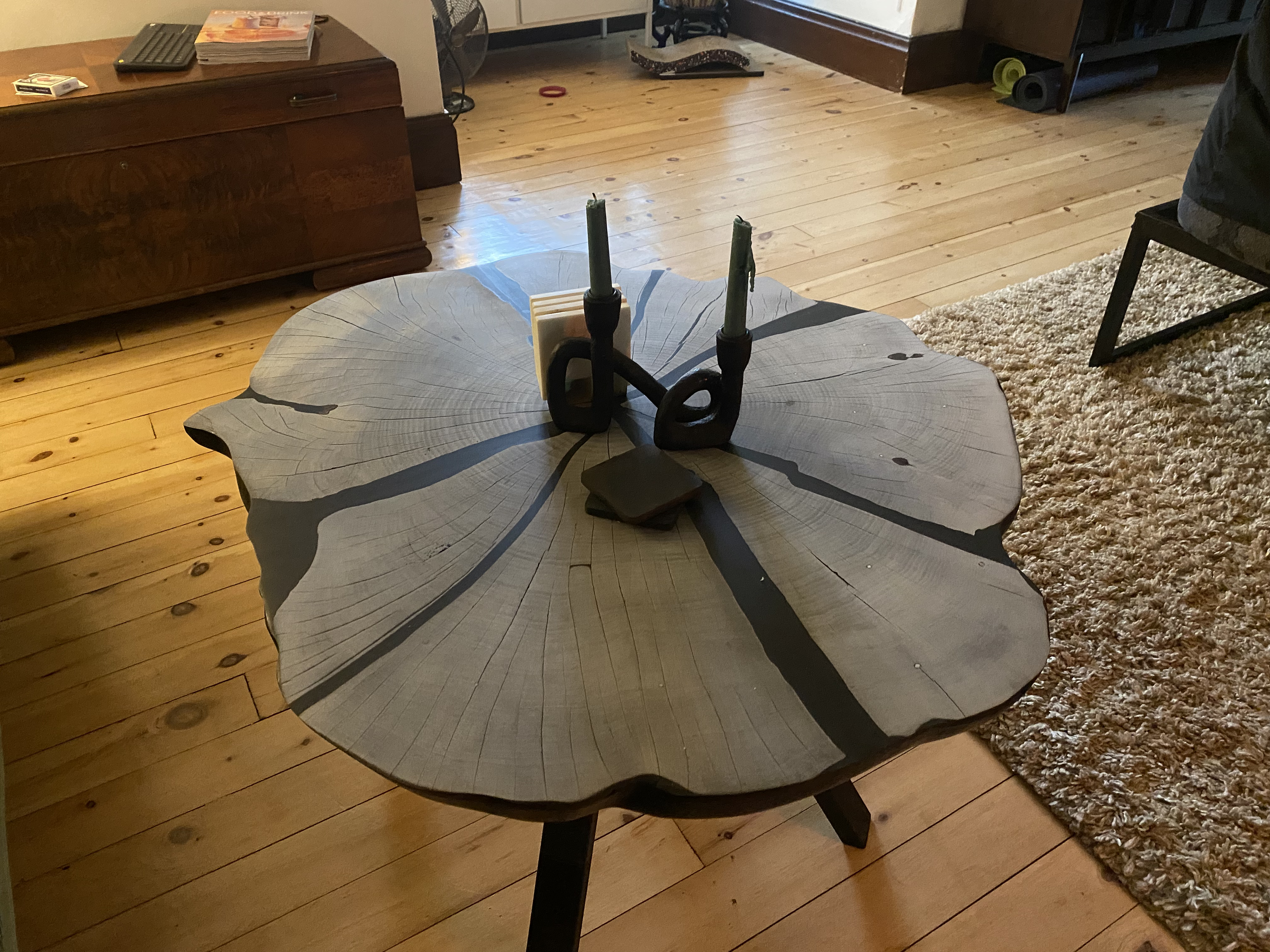
The project was complete—a testament to persistence, creativity, and craftsmanship. Despite the challenges, the result showcased the beauty of learning through trial and error.
The Process
The process was driven by a fascination with how raw, unrefined materials could be shaped into something functional and beautiful. It also provided an avenue to learn new techniques, experiment with textures, and solve unexpected challenges—turning mistakes into learning opportunities.
Woodworking became more than just a creative outlet; it was a way to test the limits of what I could achieve in a confined space with minimal resources. This project reflects the resilience, curiosity, and determination that emerged during uncertain times.
Woodworking became more than just a creative outlet; it was a way to test the limits of what I could achieve in a confined space with minimal resources. This project reflects the resilience, curiosity, and determination that emerged during uncertain times.
Initial: Starting Place
The project began with a vision and a rough-cut piece of the cookie. At this stage, the focus was on preparation—smoothing the edges and ensuring the base was ready for the work ahead.
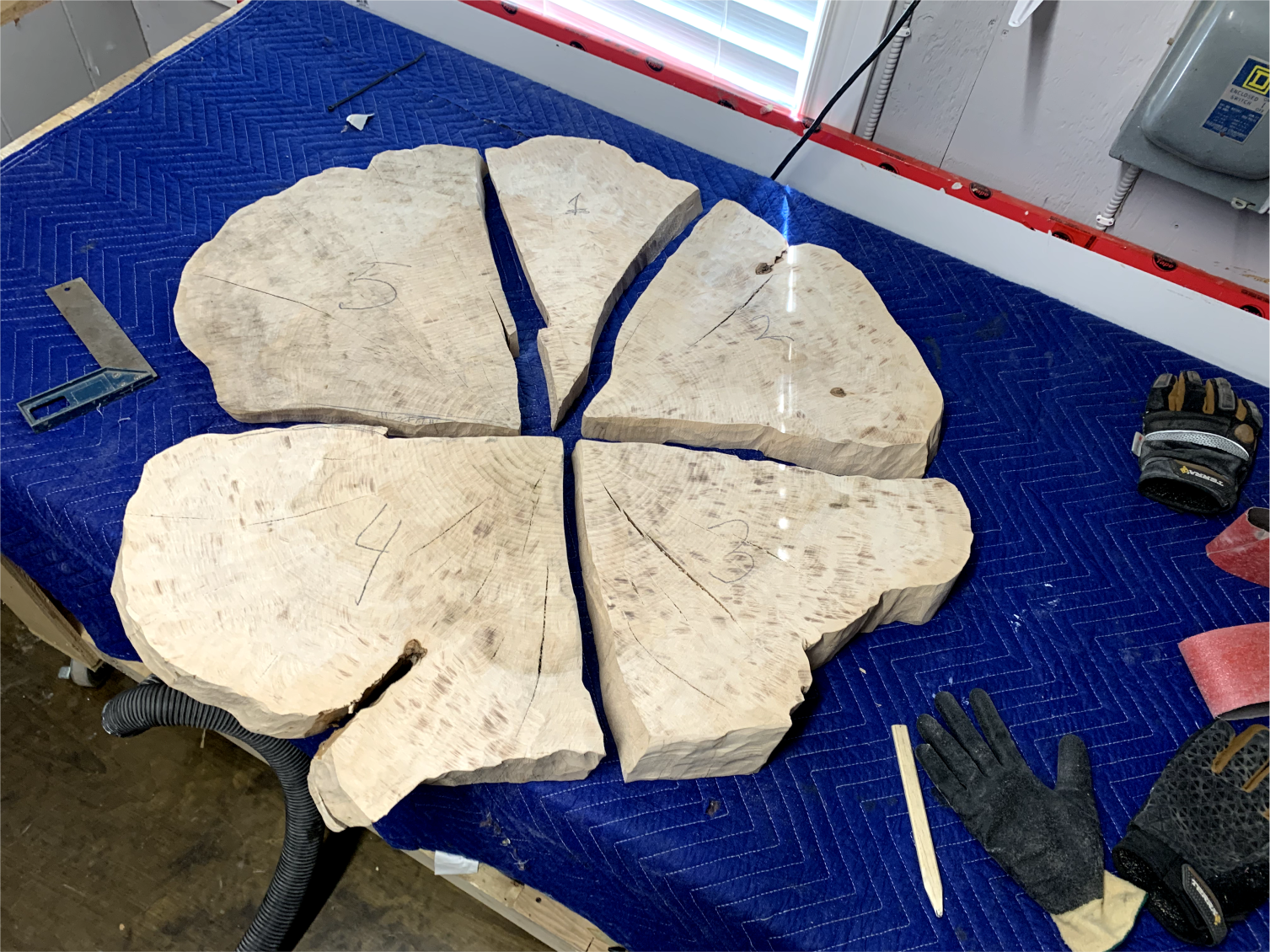
Ready: Preparation Stage
Planning led to this point. The surface was prepped, and the layout for the next steps was outlined. Meticulous preparation helps to avoid issues down the road.
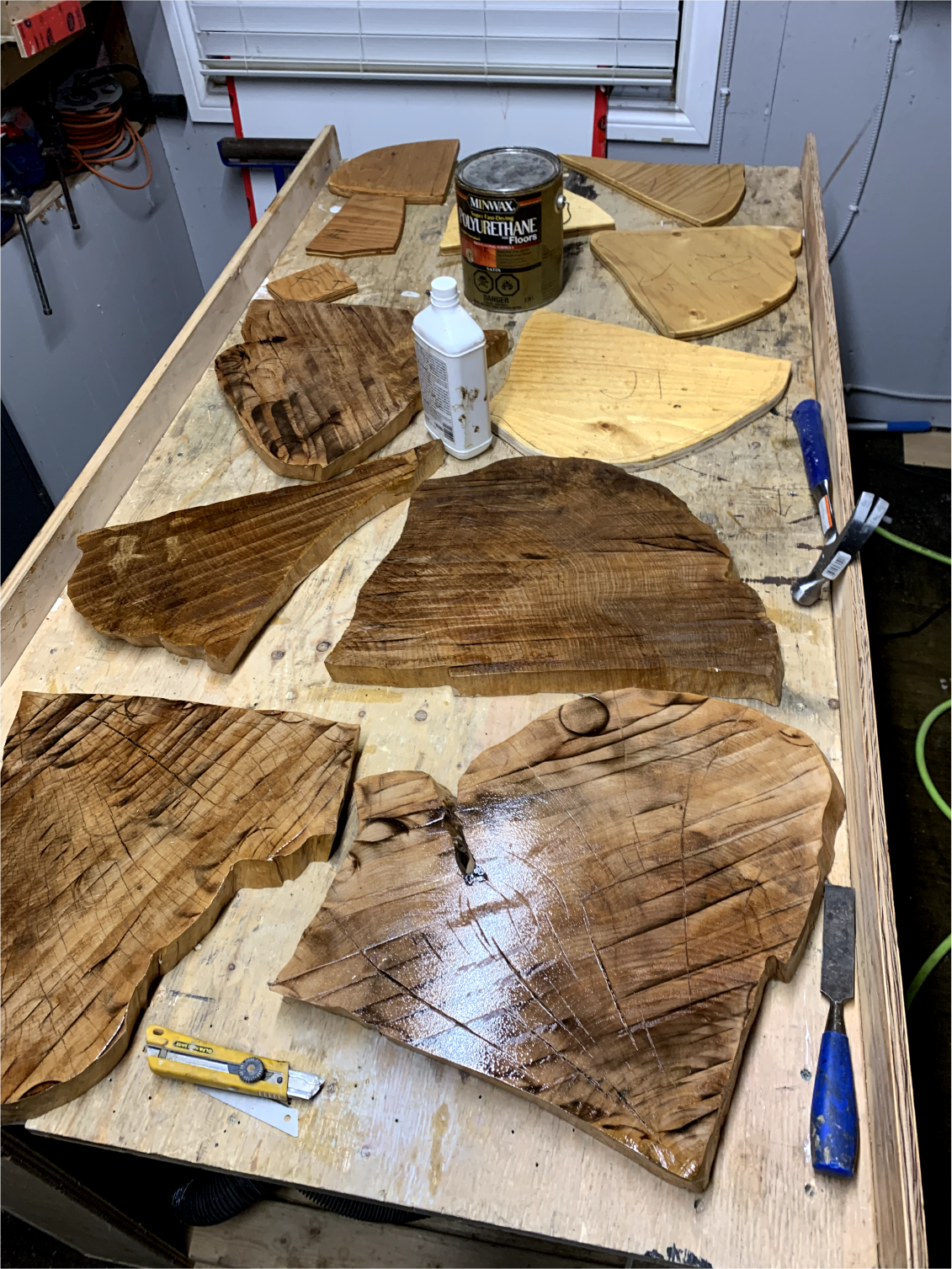
Steady: Ready to Pour
The surface was primed for epoxy pouring. All tools and materials were gathered, emphasizing the importance of readiness before committing to a significant step.
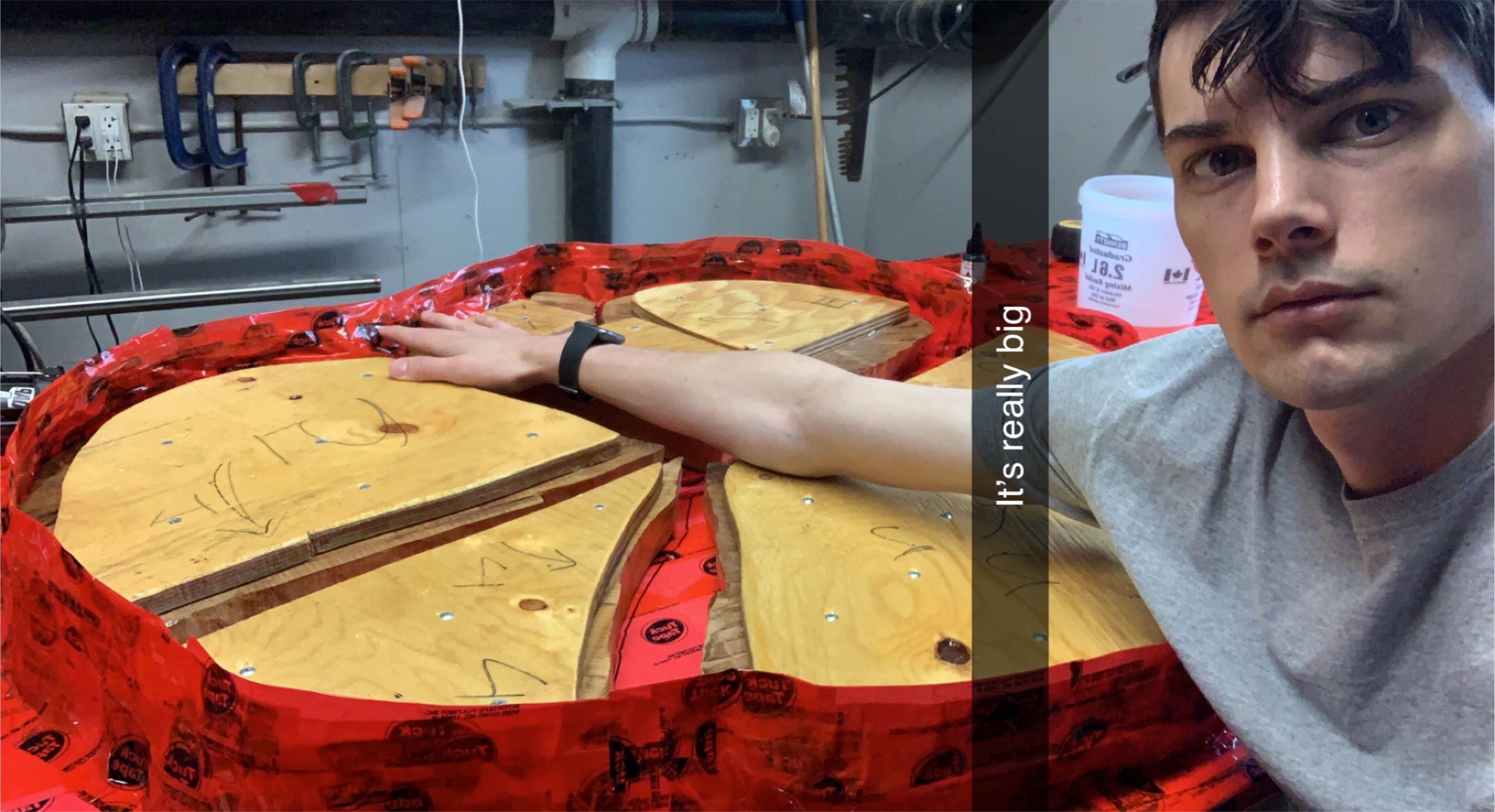
It was the time to act,
The epoxy was ready to be poured, marking a decisive moment in the process. Precision here set the tone for the entire project.
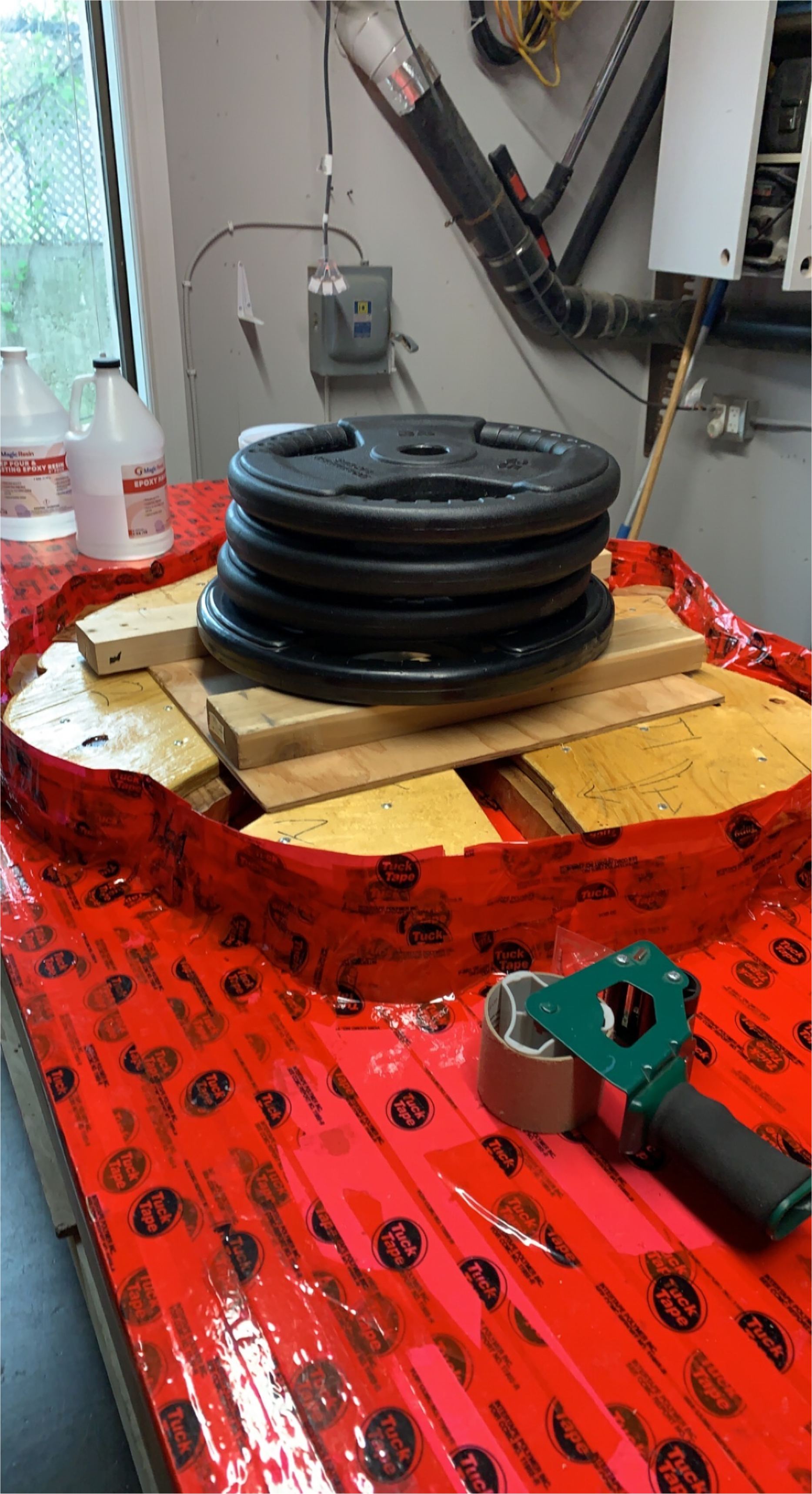
Oh F&$: Poured Black Epoxy*
Mistakes happen. The black epoxy didn’t turn out as expected, marking a moment of frustration. However, challenges like these provide opportunities to learn and improve.
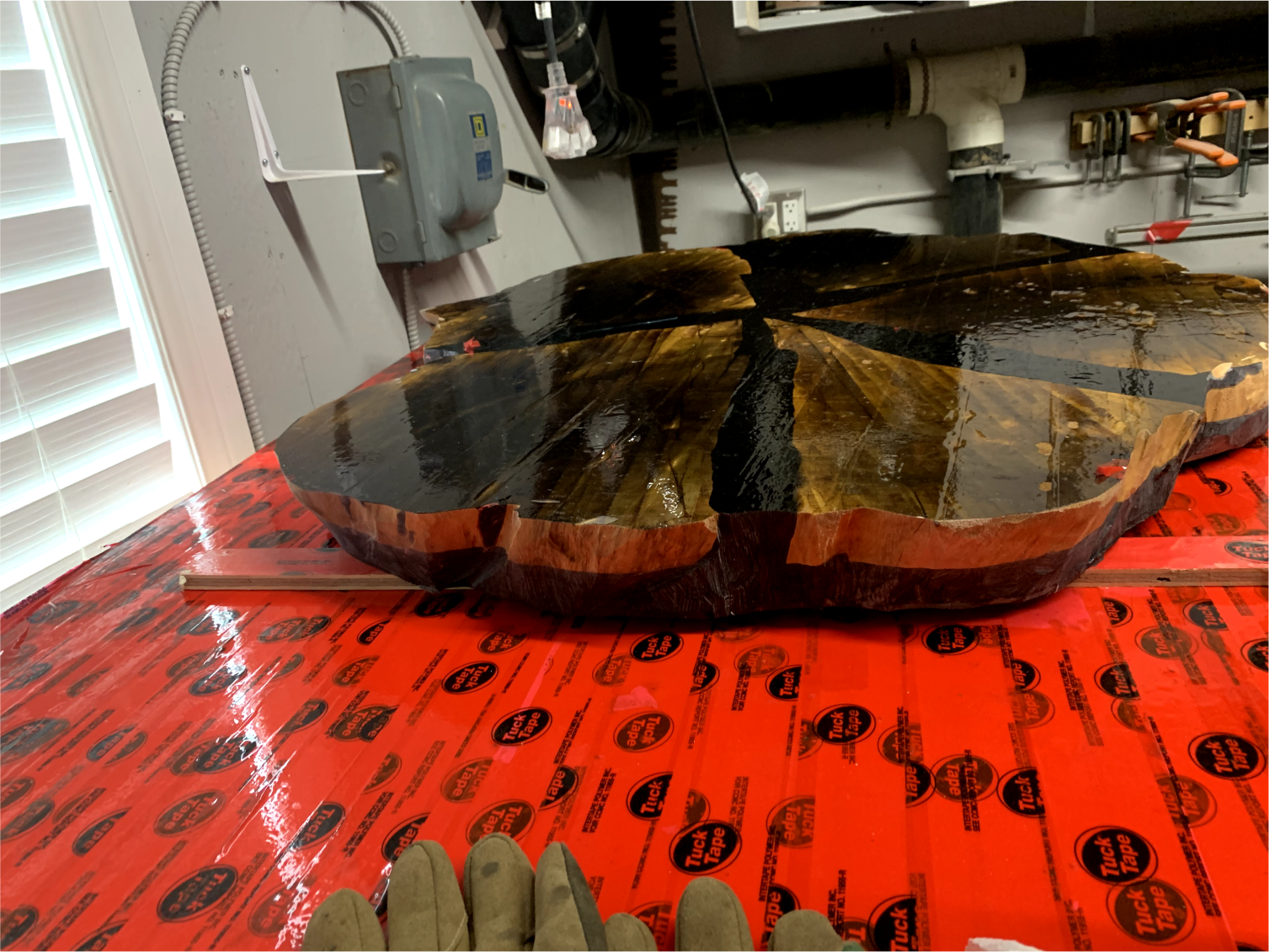
Bad Times: A Bad State
The project reached a critical low point. Things looked bleak, but perseverance would soon take this misstep and turn it into a stepping stone for improvement.
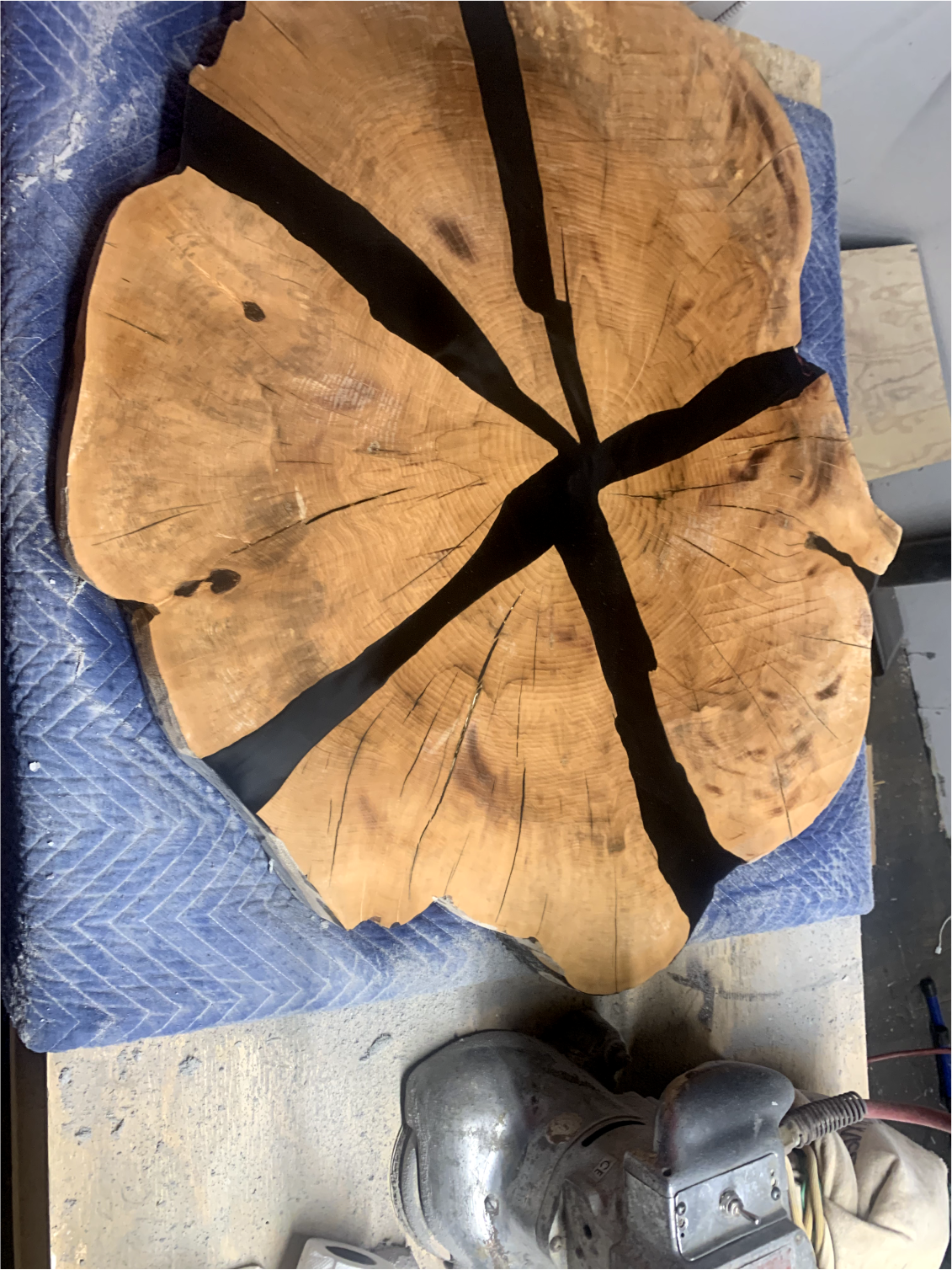
Better Lines: Fixing the Flaws
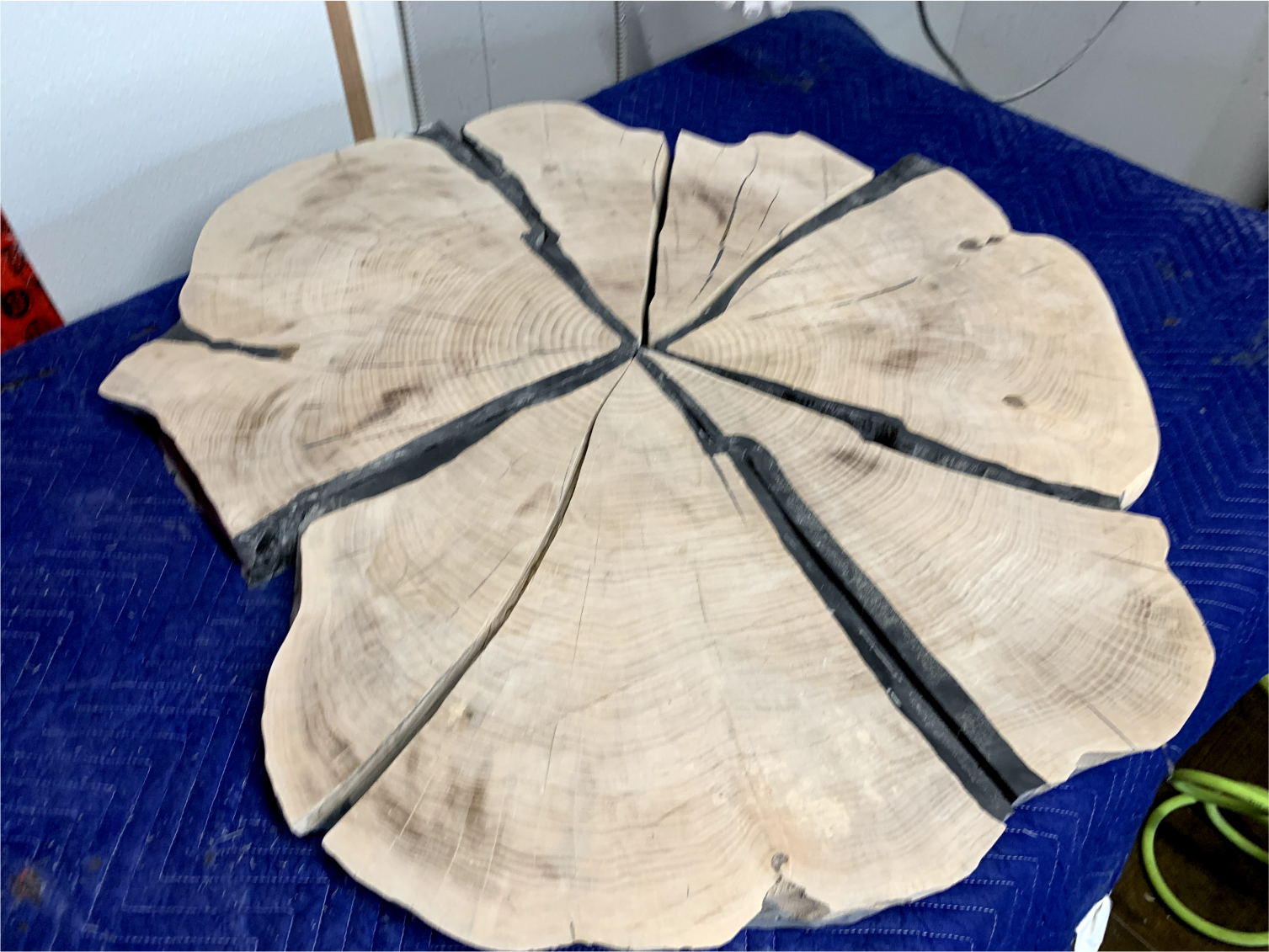
Better Shapes: Back Together Again
The shape was restored, bringing the project back to life. This stage represents resilience and the willingness to adapt and iterate.
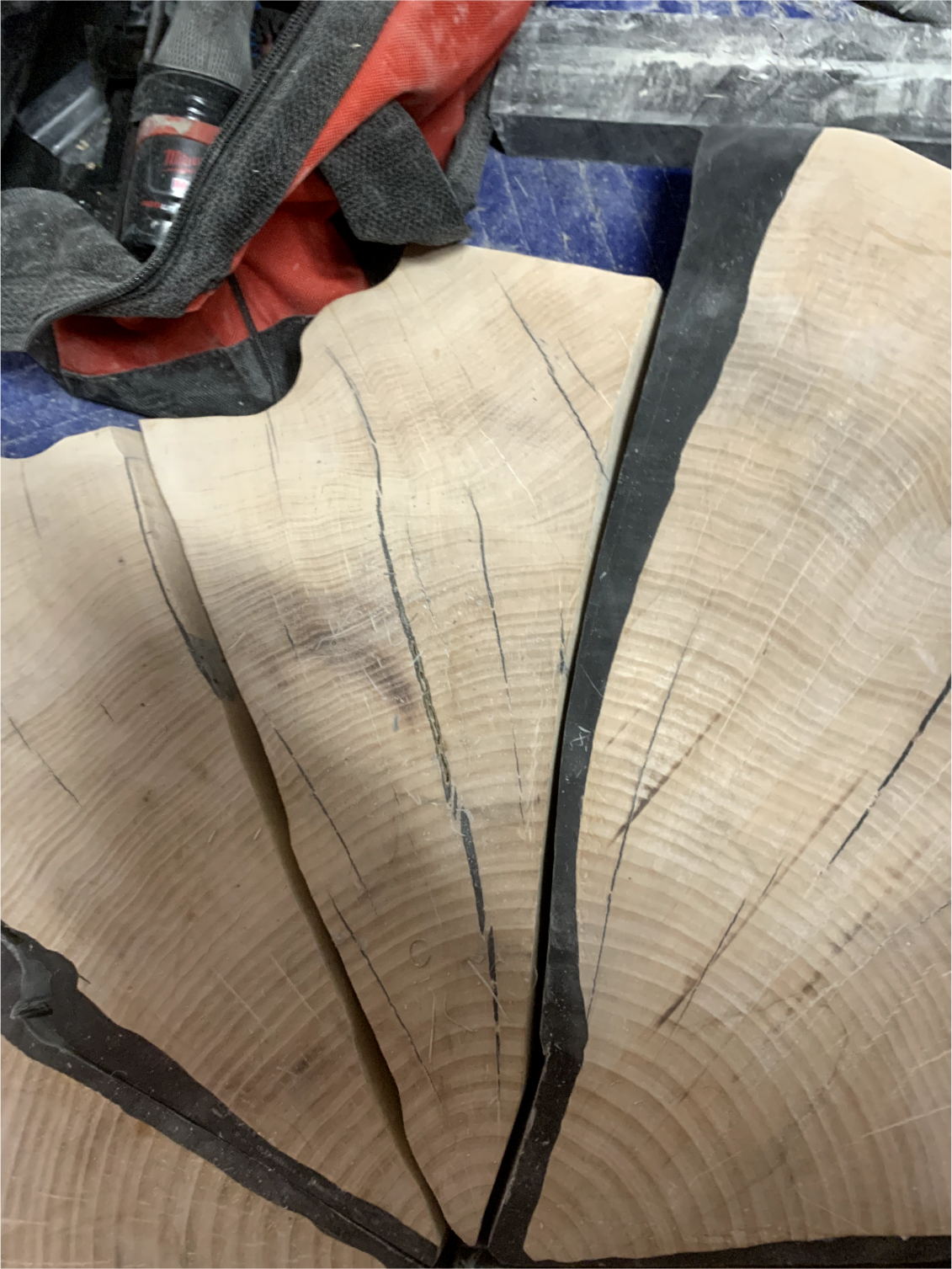
Looking Broken but Better: Clean It Up
Despite the scars, the piece began to show promise. Cleaning and reshaping were essential in making progress after earlier mistakes.
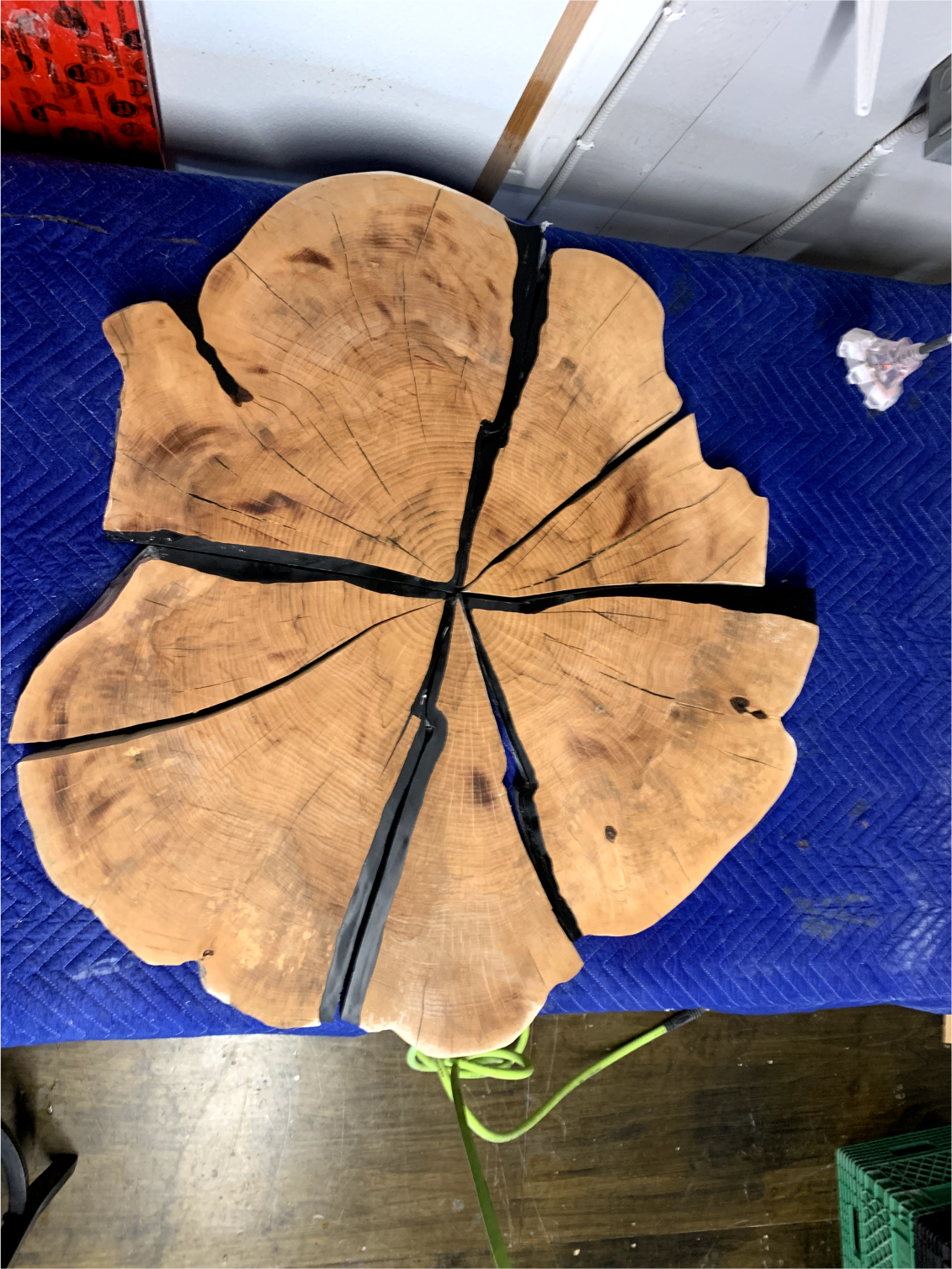
Leg 1: Building the First Foundation
The first leg was constructed, symbolizing a new foundation for the project. Each piece added stability and confidence for the final product.
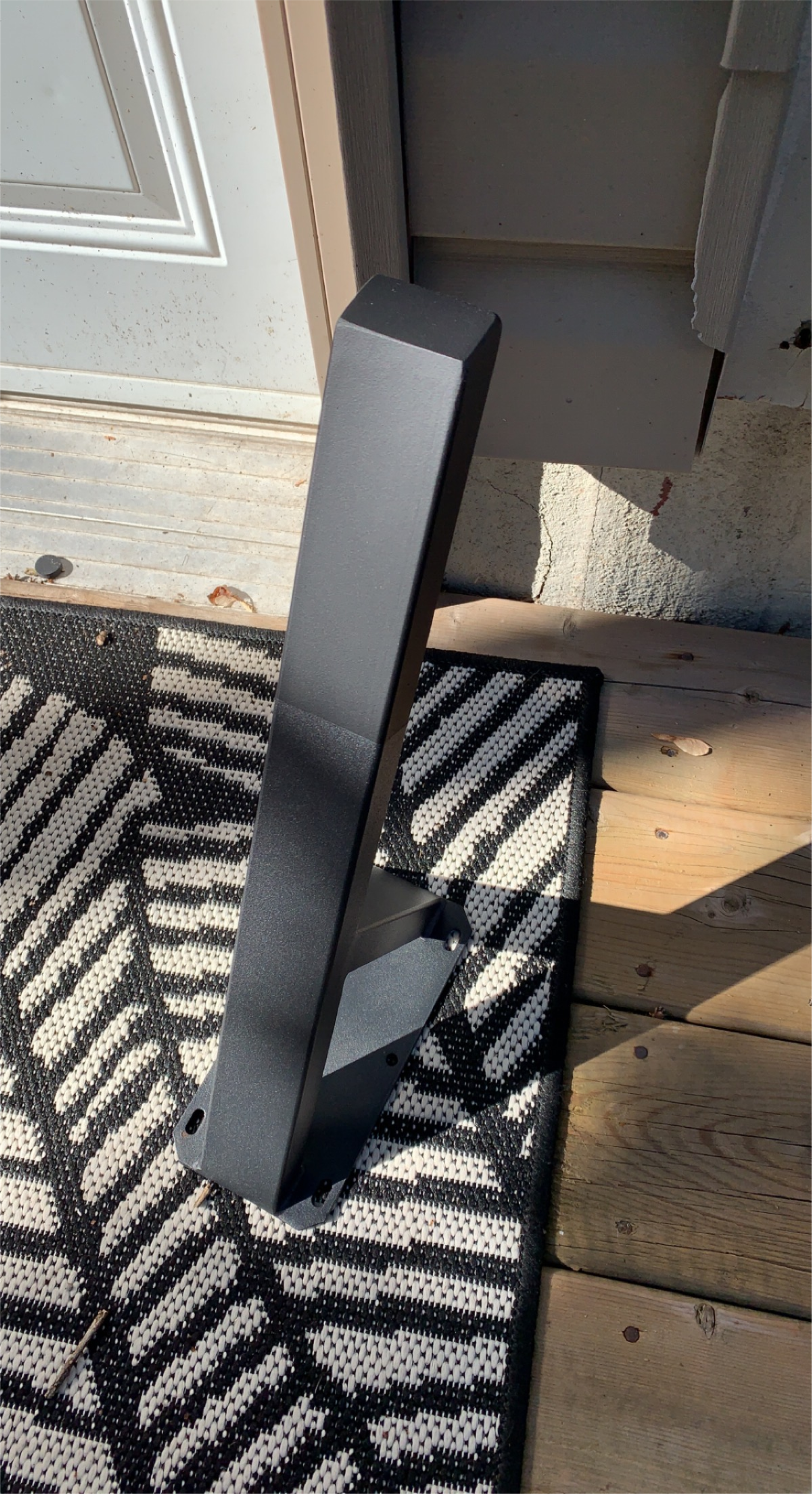
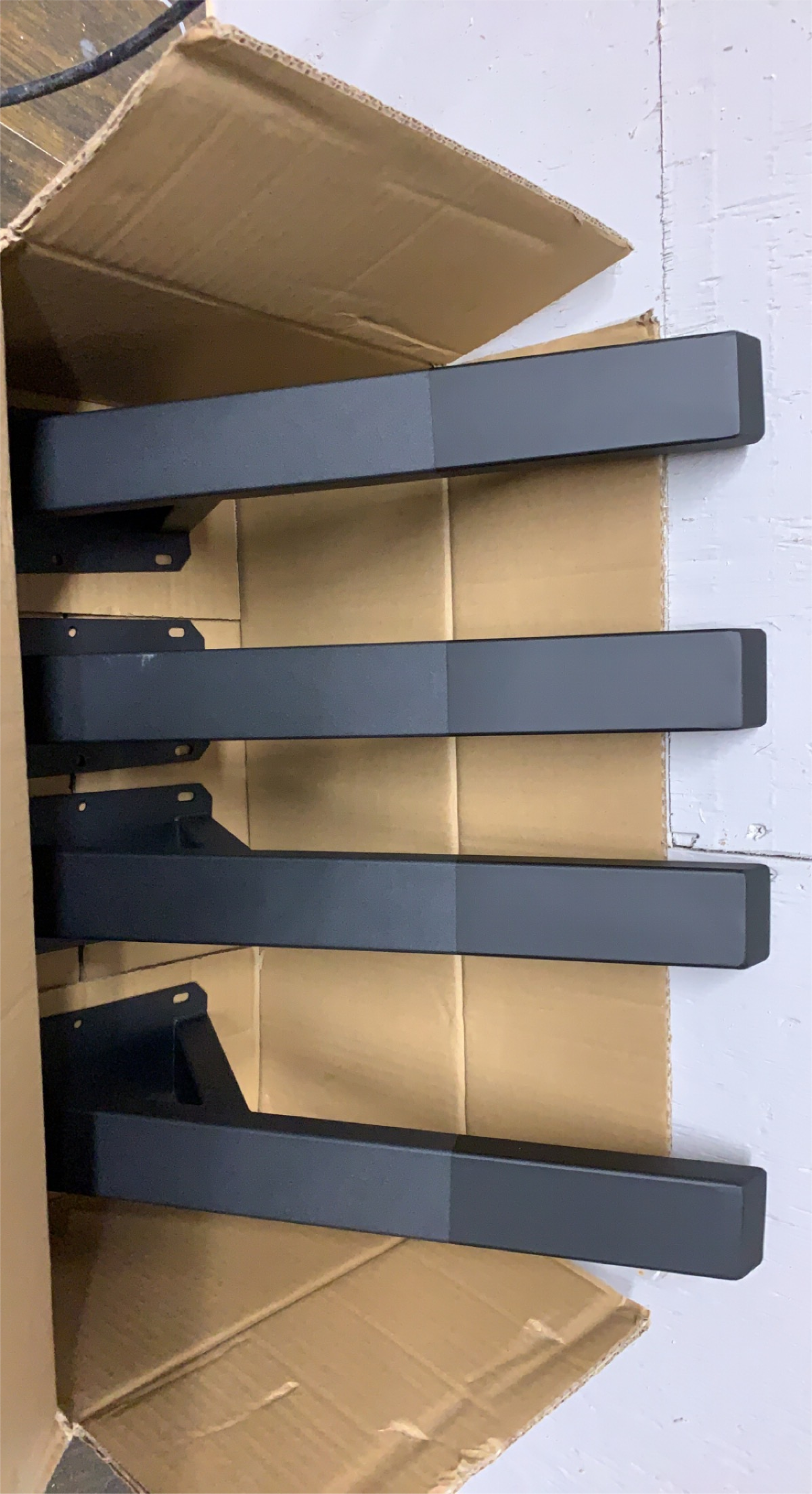
Starting to Look Good: Raw Outline
The rough outline of the piece began to emerge, showcasing the potential hidden within. The project was finally turning into something tangible.
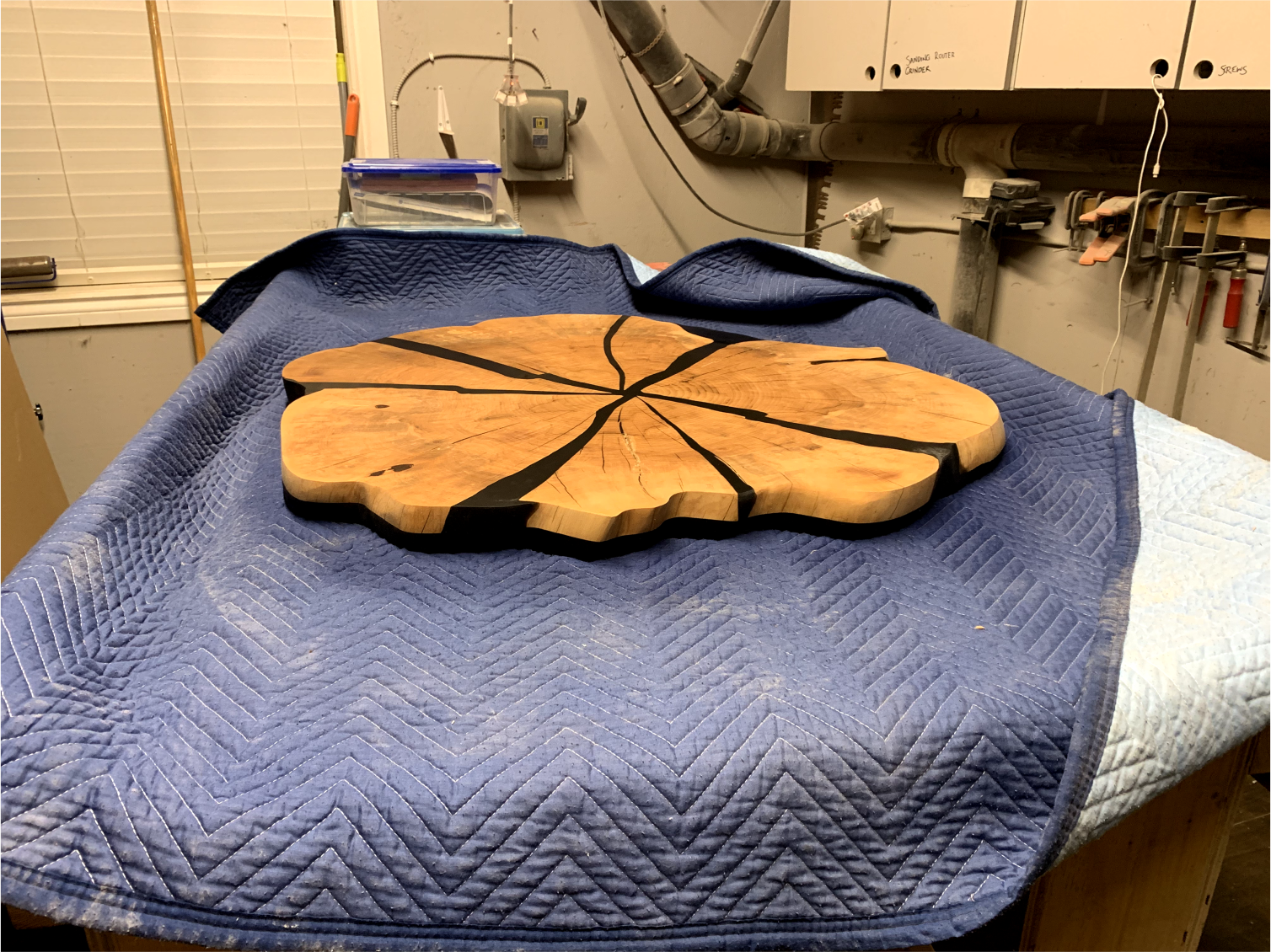
Piano Black Style: First Look
A sleek piano black finish was applied, giving the project a professional and polished appearance. This was the first glimpse of its final elegance.
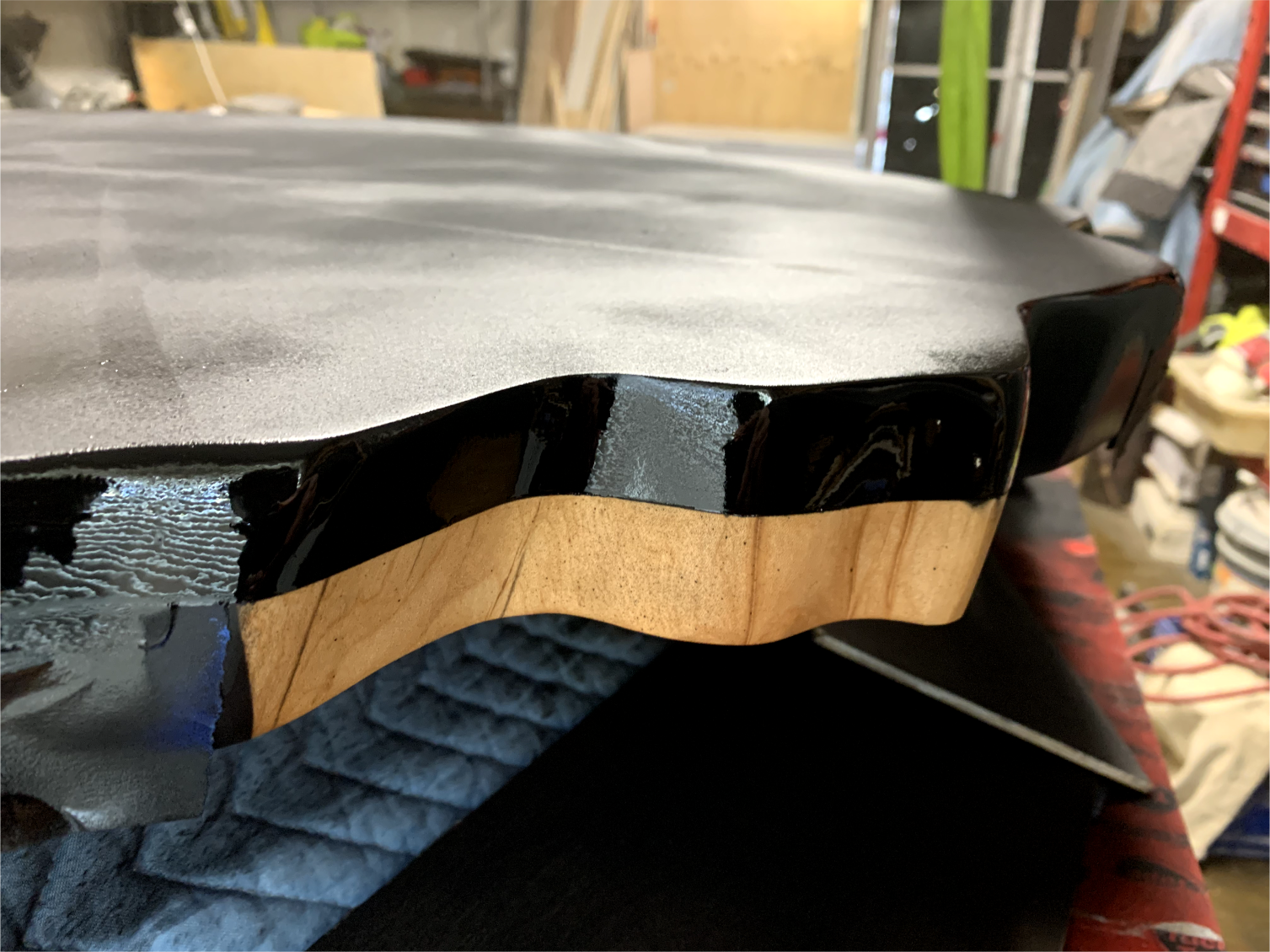
Fire Finish: Spray Black
Using a fire spray technique, the piece was transformed with a unique texture and depth. The finish added character while enhancing durability.
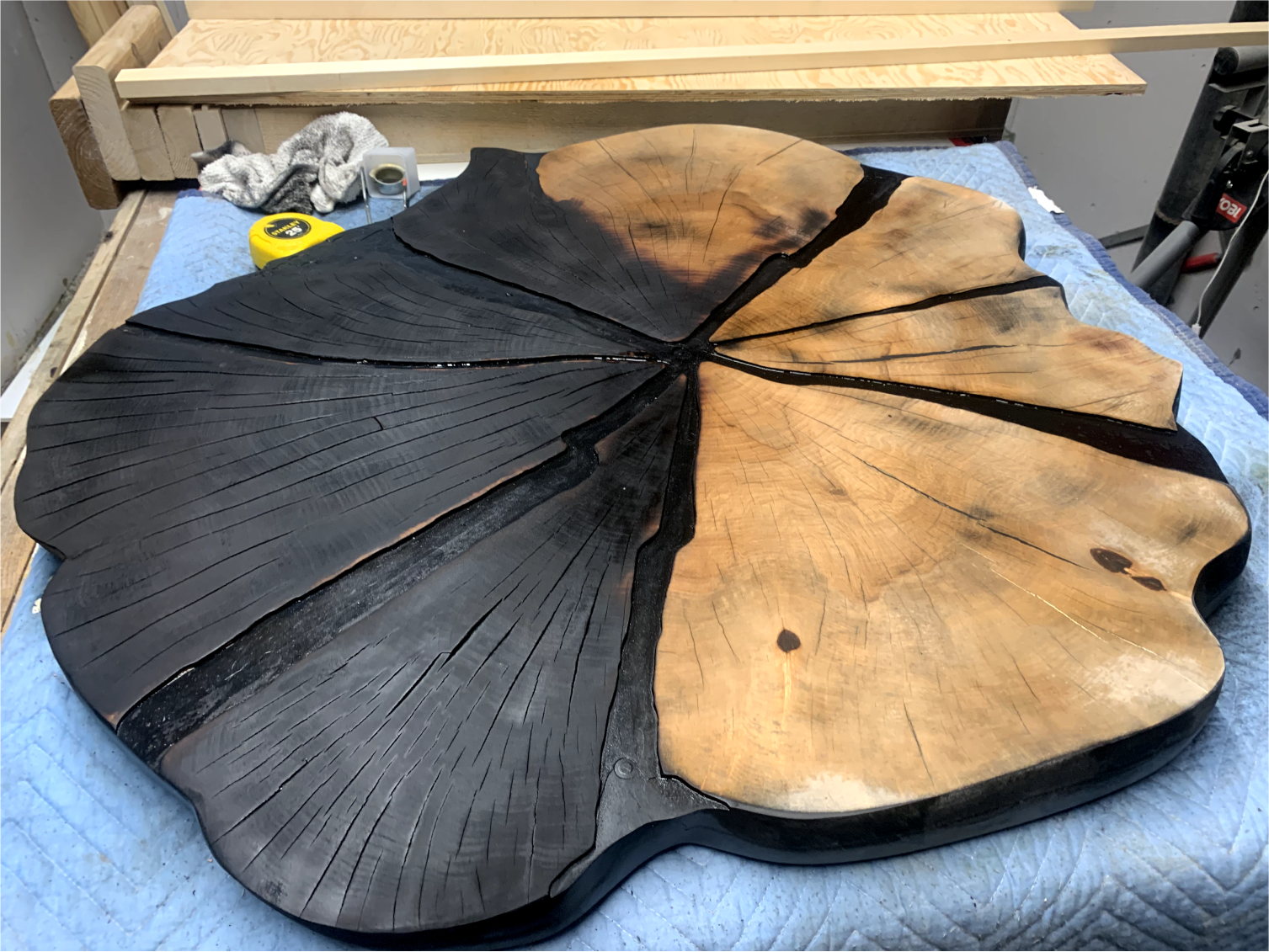
Black Stain: Burnished Finish
A rich black stain emphasized the wood grain, giving it a bold yet refined appearance. This step brought warmth and sophistication.
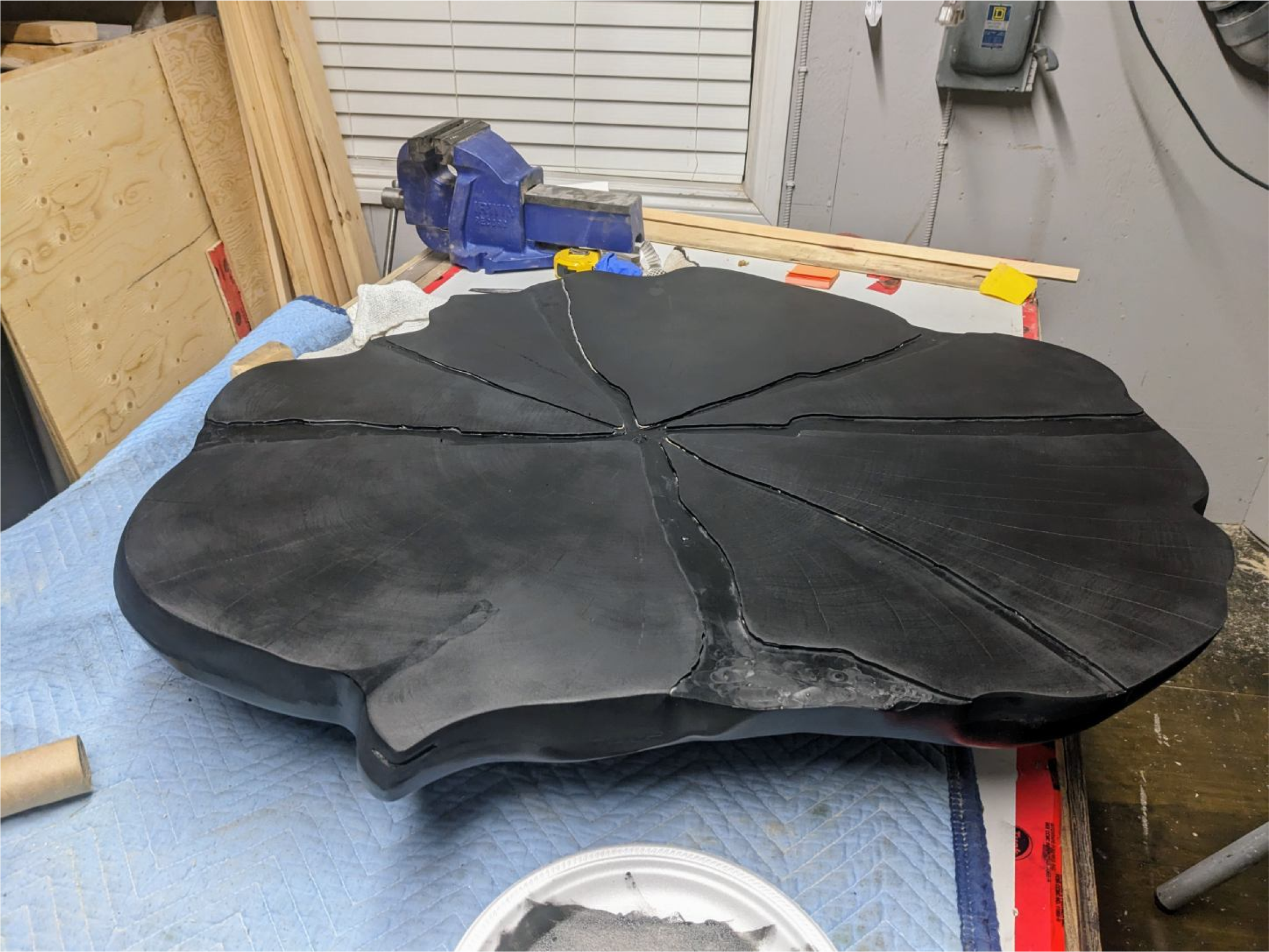
Sanded Fire Stain: Refined Finish
The fire-stained surface was sanded to smooth perfection. This stage added contrast and highlighted the wood’s natural beauty.
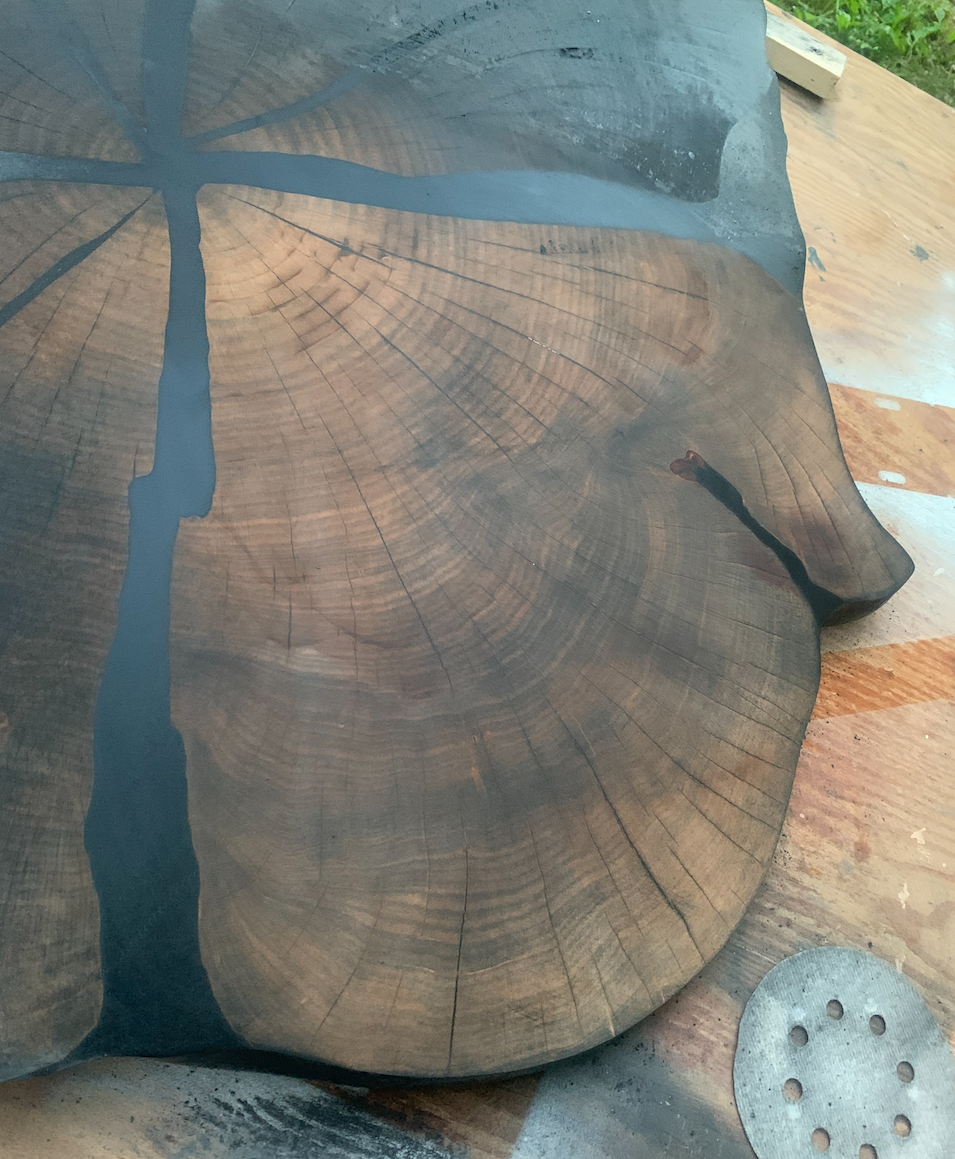
Natural Red Turns: Bare Glow
A popular Rubio Monocoat natural stain revealed stunning red hues within the wood. This subtle glow brought out the material’s intrinsic charm.
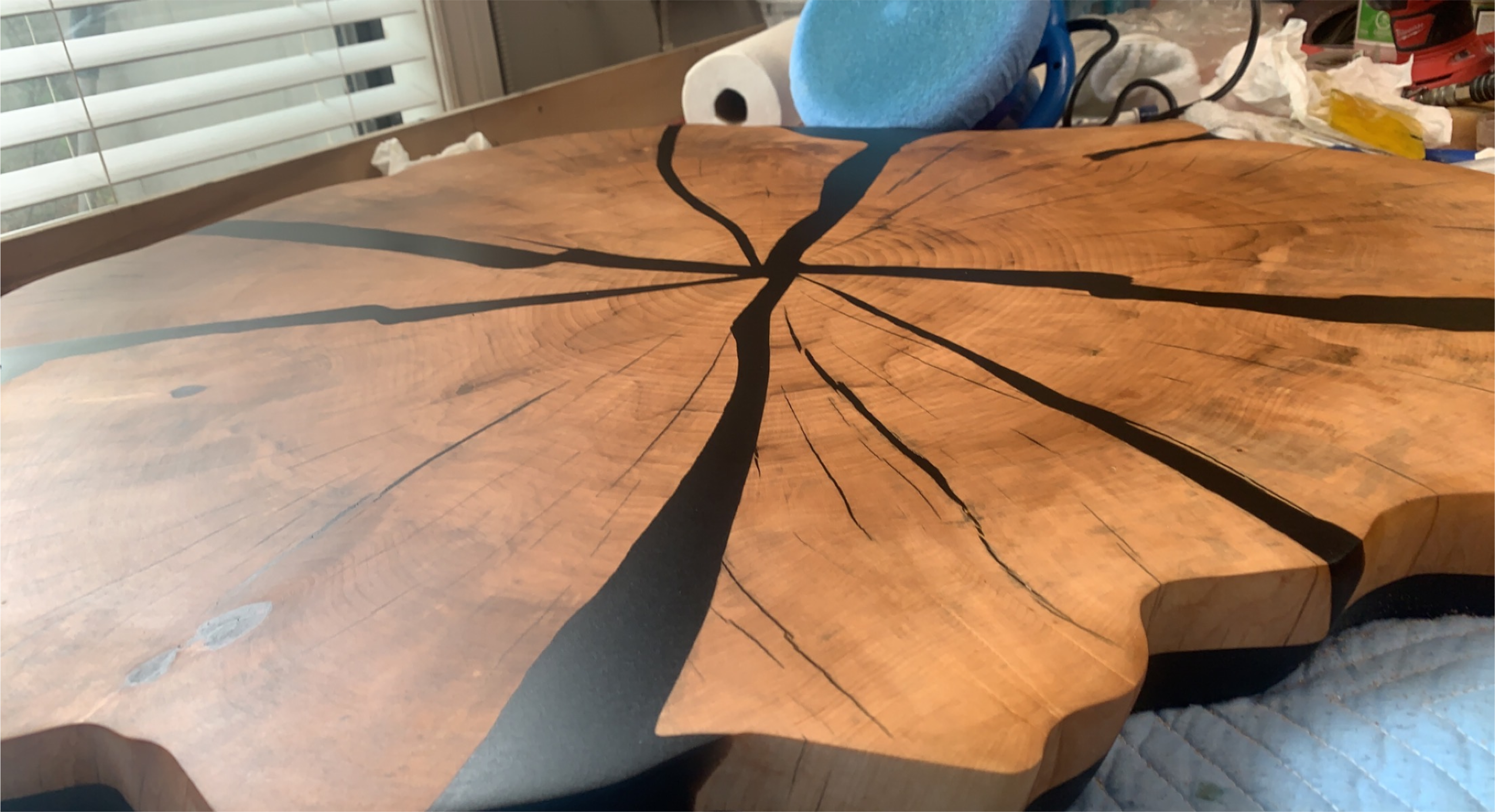
Ghosted Finish: Ethereal Elegance
The project was complete—a testament to persistence, creativity, and craftsmanship. Despite its challenges, the end result was a stunning work of art that reflects resilience and innovation.
